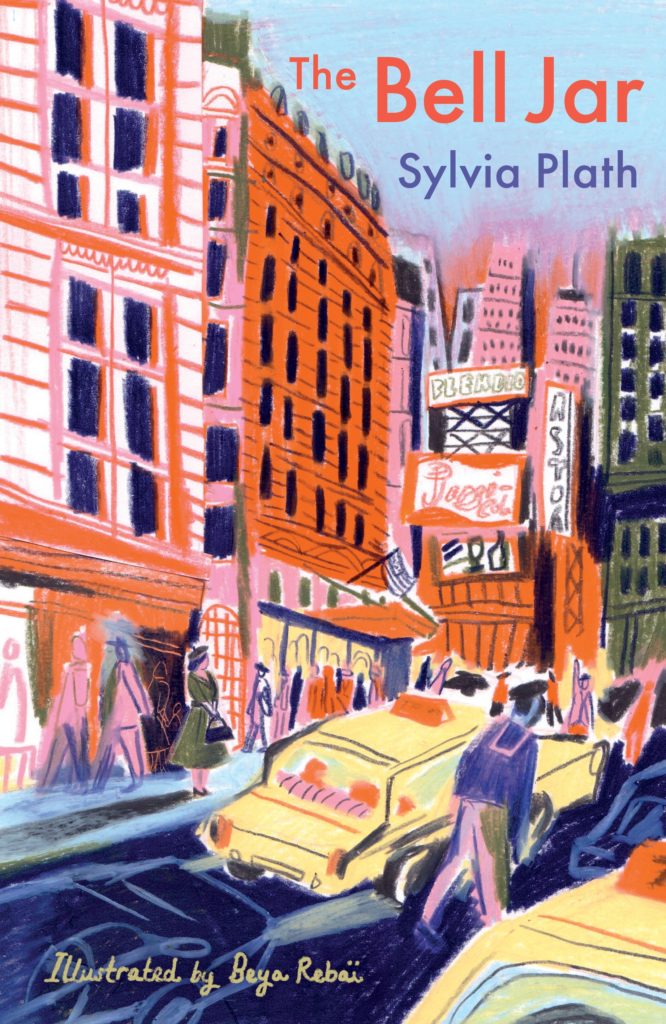Published: 15th September 2023

Summary and general non-spoilery thoughts:
Sylvia Plath’s The Bell Jar is a classic Coming-of-age fiction. 19-year-old Esther Greenwood is awarded a one-month paid internship in New York City, and is expected to be having the time of her life there. However, she feels a gap between the expectations of society and her lived experiences. She feels the need to repress her dark humour, cynicism and gloom. This novel depicts her descent into depression and her attempt at suicide, and then her slow recovery.
The Bell Jar has been far down on my TBR pile for a while now, but came to the top as a result of a recommendation from a friend and then seeing it in a bookshop. It delivers a memorable critique on global issues like societal conventions, gender inequality, and psychiatric medicine.
It is a very dark novel, and the knowledge that it is semi-autobiographical makes it even darker. There were certain passages that were very hard to read, because Plath did really well at capturing Esther’s inner turmoil and the moments of rock bottom that she experienced.
This novel has an unchronological structure, reading like stream-of-consciousness writing. It depicts the main timeline, but it is split up by Esther’s recollections of past experiences, which all contribute to the reader’s understanding of her reactions to the world around her and her descent into madness. I feel this nonlinear structure gives the reader an even more intimate view of the inside of Esther’s mind, capturing her madness and desperation.
I would definitely recommend this book, but it is important to know that it deals with very dark topics like madness, suicide, and rape.
Further Review (warning – contains spoilers):
Plath successfully depicts the unconventional coming of age of Esther Greenwood, capturing the separation she feels from other women her age. Women are expected to be wives and mothers, and sacrifice their dreams for husbands. Women of Esther’s age are also expected to be cheerful and outgoing, causing Esther to feel obligated to suppress her cynicism and gloom.
Through artistic imagery and the cynical inner voice of Esther Greenwood, Plath demonstrates with skill the way that the increasing alienation Esther feels from other women in society contributes to her spiral into madness. She constantly feels she is reacting wrong and a sense of unreality begins to take over her. Through this, Sylvia Plath delivers a great critique of the impact of society’s conventions, and the feeling of isolation it can give to people like Esther Greenwood.
Plath also critiques psychiatric medicine and the medical profession in general, through the character of Doctor Gordon, and his unhelpful prescription of shock therapy for Esther, which only worsens her spiral into madness. Later on in the novel, Esther receives much better care from Dr Nolan, and is therefore able to recover. However, Plath still criticises the (while much better performed) shock therapy as it seems to dim Esther’s intelligence – she is no longer able to think about knives.
Plath ends with an open ending, as Esther enters an interview room, knowing that, at any time, the bell jar could descend over her again.
Quotes:
“I was supposed to be having the time of my life.”
“It’s like watching Paris from an express caboose heading in the opposite direction – every second the city gets smaller and smaller, only you feel it’s really you getting smaller and smaller and lonelier and lonelier, rushing away from all those lights and that excitement at about a million miles an hour.”
“I knew perfectly well the cars were making a noise, and the people in them and behind the lit windows of the building were making a noise, and the river was making a noise, but I couldn’t hear a thing. The city hung in my window, flat as a poster, glittering and blinking, but it might just as well not have been there at all, for all the good it did me.”